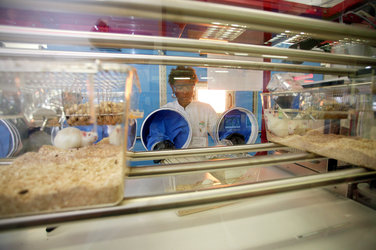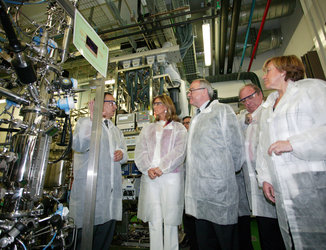MELiSSA’s future in space
Europe, through ESA, intends to play a major role in the 14-space-agency Global Exploration Strategy to explore the Moon and the rest of the solar system. Contributions are proposed in the areas of lunar landers, space transportation and habitation, all building on the strong heritage of Europe’s contribution to the International Space Station.
Long duration human missions cannot be performed without regenerative life support systems like MELiSSA that will drastically cut the amount of logistics needed to support a crew. Without recycling an estimated 30 tonnes of supplies would be required to sustain a manned Mars mission.
MELiSSA is therefore a very strong niche in which Europe can make a major contribution to exploration. The project was presented to the opening session of the International Life Support Working Group, currently co-chaired by ESA and NASA, and collaboration is already in progress with Russian institutes including the Institute of Bio-Physics in Krasnoyarsk, specialising in closed life support systems.
MELiSSA partners
The organisations partnering ESA in MELiSSA Memorandum Of Understanding are the SCK•CEN research centre in Mol, Belgium; the VITO technology centre also in Mol; Universitat Autonoma de Barcelona in Barcelona, Spain, the University of Guelph in Guelph, Canada; University Blaise Pascal in Clermont-Ferrand, France; SHERPA engineering in Paris, France and IPStar in the Netherlands.








